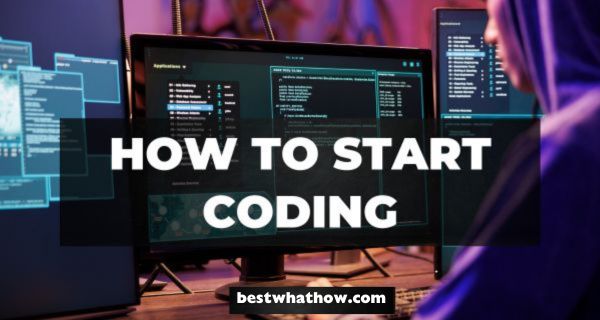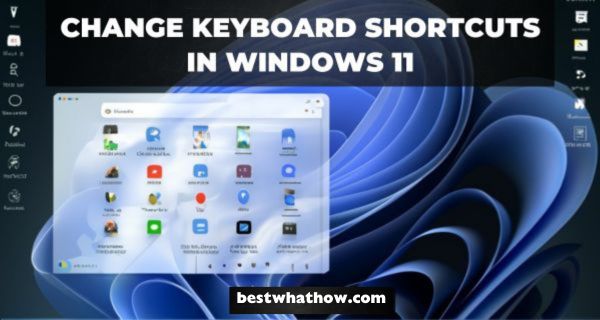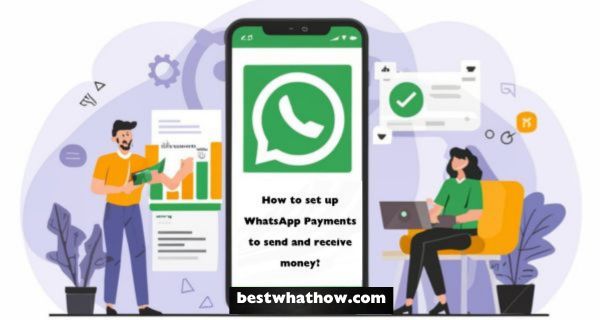Starting to code can be fun and fulfilling. You might want to make websites, apps, or work with data. Even if you’re a total beginner, you can learn! It takes time and effort, but with the right approach, you’ll get there. Let’s look at how to begin and what tools can help you along the way.
Would you like me to expand on things such as specific steps to start coding or recommended tools for beginners? Here, you will find the complete guide!
What is Coding?
Coding is like giving instructions to a computer. It’s how we tell computers what to do, whether that’s making a website, creating an app, or building software.
When you code, you’re basically writing a set of step-by-step directions that the computer can understand and follow. This allows us to create all sorts of useful and fun things, from simple programs to complex operating systems. It’s a way for humans to speak the language of computers and bring our ideas to life in the digital world.
Why Do We Need to Learn Coding?
We live in a world full of apps and software, all created using different programming languages. In recent years, coding has become a powerful tool for solving complex problems safely and efficiently.
Learning to code doesn’t just help you build things – it also improves your ability to communicate and work with others. The apps and tools created through coding are useful in practically every industry.
Now that we understand why coding is important, let’s look at some resources to help you start your coding journey.
Getting Started:
1. Choose a Programming Language:
Python: Python is a great language for beginners because it’s simple and easy to read. It’s versatile and can be used for web development, data analysis, artificial intelligence, and more.
JavaScript: JavaScript is essential for web development. It’s used to create interactive and dynamic web pages, working on both the front-end and back-end.
Java: Java is popular for building enterprise applications and Android apps. It’s known for being portable and scalable.
Swift and Kotlin: If you’re into mobile app development, Swift is used for iOS apps, while Kotlin is the go-to for Android apps.
2. Online Resources and Courses:
Codecademy: Codecademy is perfect if you like hands-on practice. They’ll guide you through coding exercises in different languages, so you can learn by doing.
Coursera and Udemy: If you prefer a classroom-style approach, check out Coursera or Udemy. They offer full courses with video lessons, quizzes, and homework, all taught by people working in the field.
freeCodeCamp: On a tight budget? freeCodeCamp is your go-to. It’s completely free and focuses on web development. You’ll tackle coding challenges and build real projects to sharpen your skills.
3. Practice Regularly:
Coding Challenges: Websites like LeetCode, HackerRank, and CodeSignal offer a variety of brain-teasers that’ll sharpen your problem-solving abilities. It’s like a gym for your coding muscles!
Build Projects: Put your knowledge to work by creating something real. Start small – maybe build a personal website to showcase your hobbies, design a handy calculator app, or craft a digital to-do list to keep yourself organized. These practical projects help bring your coding skills to life.
Essential Tools for Beginners:
1. Code Editors/IDEs:
Visual Studio Code (VSCode): Visual Studio Code (VSCode) is a lightweight and flexible code editor with a wide range of extensions for various programming languages.
PyCharm (Python), IntelliJ IDEA (Java), or Eclipse: PyCharm, IntelliJ IDEA, and Eclipse are Integrated Development Environments (IDEs) designed for specific languages like Python and Java. They offer advanced features such as debugging and code completion.
2. Version Control:
Git: Think of Git as your code’s time machine. It keeps track of all the changes you make, letting you hop back to any point in your project’s history.
Now, GitHub and GitLab are like social media platforms for your code. They’re online spaces where you can store your projects, show them off to others, and team up with fellow coders from around the world.
3. Online Platforms for Practice:
GitHub: It’s like a social network for coders. You can browse tons of projects, contribute your own ideas, and team up with other developers. It’s a great place to learn and grow your skills.
CodePen: Perfect for playing around with website design. You can tinker with HTML, CSS, and JavaScript right in your browser and see your creations come to life instantly. It’s super fun for experimenting with web stuff.
Repl.it: This is your one-stop-shop for trying out different programming languages. No need to install anything on your computer – just pick a language and start coding. It’s ideal for beginners who want to practice without any complicated setup.
4. Documentation and Learning Resources:
MDN Web Docs (Mozilla Developer Network): A great place to learn about web technologies like HTML, CSS, and JavaScript, with lots of helpful guides and information.
Stack Overflow: A popular website where you can ask coding questions and get answers from other developers.
5. Community and Forums:
Reddit: Explore subreddits like r/learnprogramming and r/programming for helpful advice, resources, and beginner-friendly discussions.
Discord and Slack Channels: Join online coding communities to chat with fellow learners and professionals, get guidance, and collaborate on projects.
Tips for Success:
- Start Small: Avoid getting overwhelmed by beginning with simple projects and slowly moving to more challenging ones.
- Consistency is Key: Set aside regular time for coding practice.
- Problem-solving Skills: Concentrate on grasping the logic and problem-solving methods instead of just memorizing syntax.
- Don’t Fear Failure: Mistakes are a natural part of learning. Accept them and learn from them.
Benefits of Learning to Code
- High Earning Potential: Coding professionals can earn a lot in any industry.
- Career Advancement: It improves career prospects by opening doors to well-paying jobs.
- Enhanced Skills: Coding improves technology understanding, problem-solving, and logical reasoning abilities.
- Boosts Creativity: It requires creative thinking to develop applications and projects.
- Builds Confidence: Helps people from various backgrounds start businesses and succeed.
Starting to learn coding from the beginning might feel overwhelming, but if you stay determined and use good learning materials, you can establish a strong programming base. The key is to practice regularly and stay curious about learning.
Best of luck with your coding journey!








